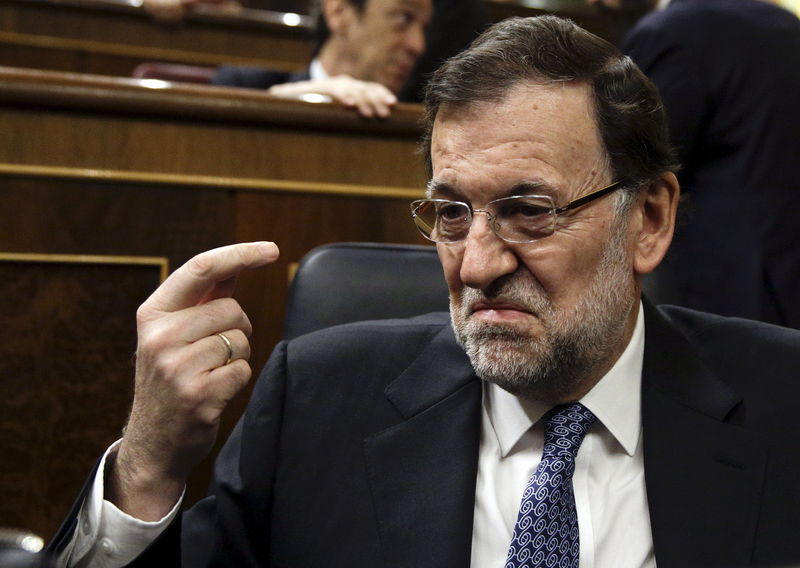By Julien Toyer and Robert Hetz
MADRID (Reuters) - Spanish Prime Minister Mariano Rajoy on Monday said the economy would grow 2.9 percent this year and next, creating 500,000 jobs, although opinion polls showed his People's Party losing support as voters favour a change of government.
Rajoy is betting on an accelerating economic recovery to win a second term this year in an election seen as the most uncertain in more than 30 years as the rise of new parties shakes up Spain's political order.
The centre-right government will send its three-year economic plan, including updated forecasts, to the European Union at the end of the week, while the National Statistics Institute will report preliminary growth figures for the first quarter on Thursday.
"The Spanish economy will grow 2.9 percent in 2015, and around the same rate next year," Rajoy told an audience of business executives and journalists at an event in Madrid.
The previous forecast was for 2 percent growth seen last September and a 2.4 percent expansion predicted in February.
Low oil prices, European Central Bank monetary expansion and a gradual pick up in domestic consumer spending are largely behind the economic pick-up.
Yet, with about one in four people out of work, salaries still pressured downward and inequalities rising more than anywhere else in Western Europe, Rajoy's PP is finding it hard to convince voters.
A MyWord opinion poll for Cadena Ser radio showed the PP would win by a narrow margin if the parliamentary election was held today but would get only 22 percent of the vote, its lowest score in 4 months, while other parties rose.
The survey put 4 parties - the PP, the opposition Socialists and upstarts Ciudadanos and Podemos - at between 18 and 22 percent, paving the way for a fragmented parliament.
Rajoy said political instability, and tensions between the euro zone and Greece, would be the main risks for the economy over the next months and Spaniards should think twice before voting for newcomers.
"The People's Party was not created in half an hour," he said, in a direct attack on the new leftist Podemos and centrist Ciudadanos parties, which jointly attract 40 percent of voting intentions in the MyWord poll.

"We took tough and difficult decisions and there was a cost for that, but I hope to convince Spaniards in the next months... We aim to win and we are in a position to win," he said.